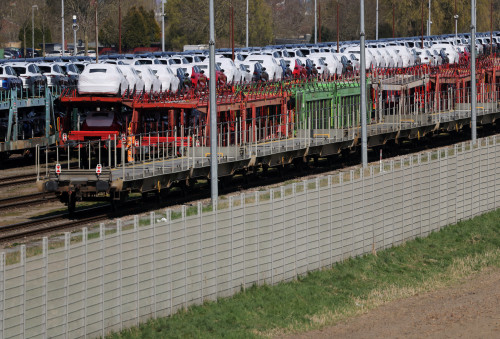By Dietrich Knauth
NEW YORK (Reuters) -The Trump administration on Monday asked a U.S. appeals court to pause a second court ruling that found the president had exceeded his authority by imposing sweeping tariffs on imports, saying the decision jeopardizes trade negotiations with other nations.
Trump’s tariffs were first declared illegal by the Manhattan-based U.S. Court of International Trade on May 28. A federal court in Washington, D.C. followed with a second ruling the next day, which also found that the tariffs exceeded the president’s authority under the International Emergency Economic Powers Act, a law intended to address “unusual and extraordinary” threats during national emergencies.
The lawsuits which led to those rulings challenged Trump’s use of the law to justify the so-called “Liberation Day” tariffs on imports imposed in early April on most U.S trading partners, as well as a separate set of tariffs levied on China, Mexico and Canada in February. The latter are related to his accusation that the three countries were facilitating the flow of fentanyl into the U.S., allegations the countries deny.
The Trump administration has already won a temporary pause of the first court loss, allowing it to reinstate tariffs during the early stages of the appeal. The court is expected to rule on the Trump administration’s request for a longer-term pause later this month.
The second ruling, from U.S. District Judge Rudolph Contreras had less immediate impact than the Court of International Trade ruling, because it only stopped the Trump administration from collecting tariffs from two small businesses that had sued whereas the trade court ruling blocked the tariffs that had been challenged broadly.
But it contained a more direct finding that IEEPA simply does not authorize tariffs, going further than the more nuanced ruling in the Court of International Trade.
A blunt ruling that IEEPA does not authorize tariffs undercuts Trump’s ability to use tariffs as a “credible threat” in trade talks, the Department of Justice wrote in an emergency motion to the U.S. Court of Appeals for the D.C Circuit, which has jurisdiction over the D.C. district court.
Four senior Trump officials, including U.S. Secretary of State Marco Rubio and U.S. Trade Representative Jamieson Lee Greer had submitted affidavits to Contreras before his May 29 ruling, saying that stopping the tariffs would threaten the United States’ economic and national security by jeopardizing “delicate” trade negotiations with dozens of other nations.
The small businesses that brought the lawsuit, educational toy makers Learning Resources Inc and hand2mind, said they would oppose the Trump administration’s attempt to block the lower court ruling.
(Reporting by Dietrich Knauth, Editing by Alexia Garamfalvi and Deepa Babington)


